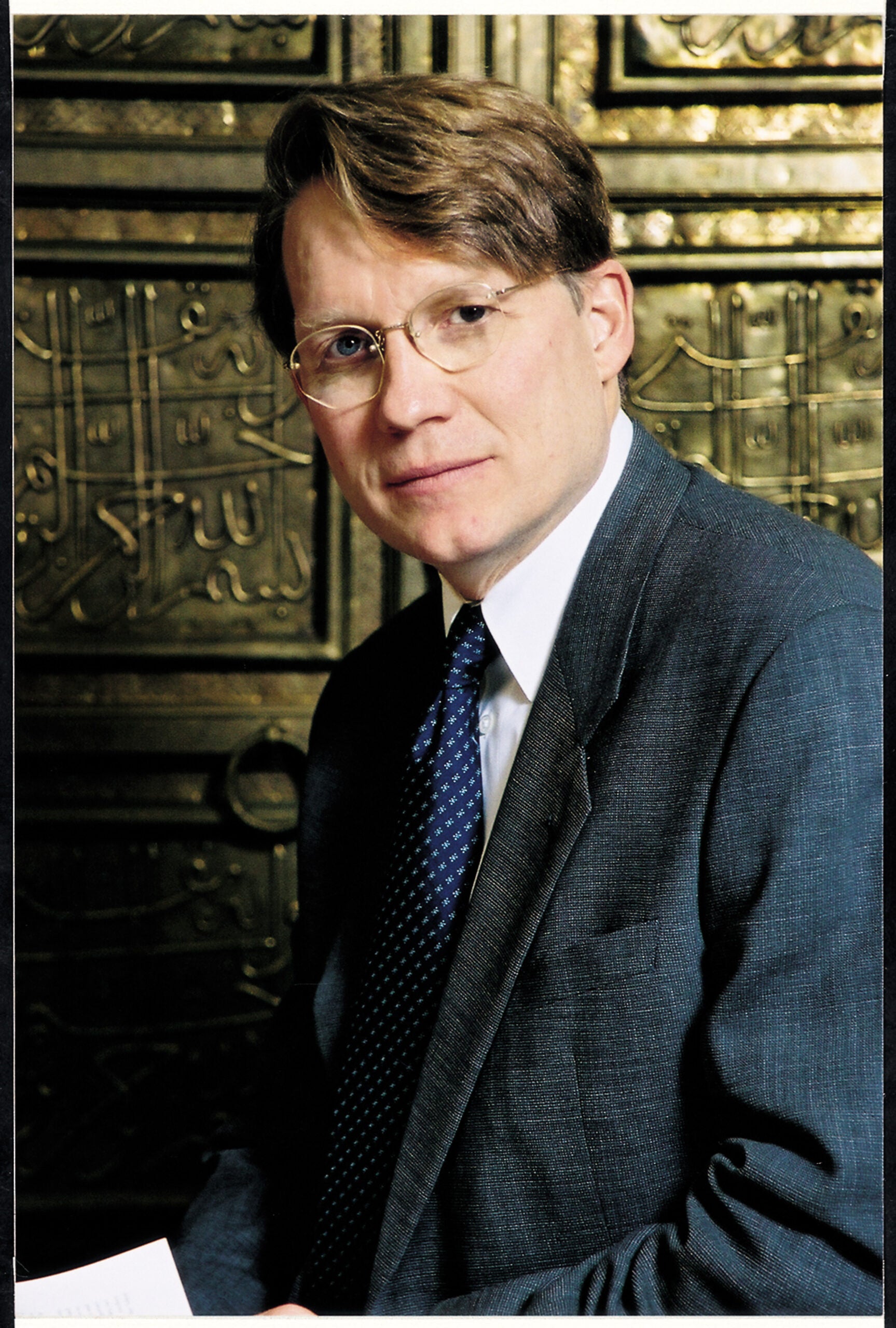“We ordinarily don’t try to respond to the news of the hour,” said Frank Vogel, director of the HLS Islamic Legal Studies Program. But for Vogel, like for so many other people, everything changed on September 11. A program that for 10 years had toiled in a relatively quiet corner of the academic arena suddenly gained widespread attention–some of it hateful, most of it curious. The program had a responsibility, Vogel said, to address the questions. Since the attacks, he has instituted a lecture series, refined course offerings, answered media inquiries, met with Muslim students, and listened to the needs of an HLS community searching for insight.
“There was so much not only negative reaction to the Islamic tradition and civilization but also a lot of interest,” he said. “So many people, including George Bush, were all calling for a greater understanding of Islam, and we do that full-time.”
Vogel, who is not Muslim, helped establish Islamic legal studies at HLS after practicing law and doing research in the Middle East. The program recently faced scrutiny over an endowment received from the Binladin family, one of whom graduated from HLS. The graduate, Abdullah Binladin LL.M. ’92 S.J.D. ’00, and his family members long ago ostracized Osama bin Laden and condemned his actions.
“People began to realize that the Binladins are not to blame, that they are an impressive and upstanding family and they’ve been dealt a very severe blow by the events,” said Vogel. “I think people now realize, more than they might have, why Islamic law deserves attention.”
He acknowledges, however, that the study of law based on a religion can seem incongruous at a secular law school. While derived from the sacred text of the Koran, Islamic law has evolved over 1,400 years of interpretation and represents a major body of jurisprudence whose history and current influence should be studied, according to Vogel. Even the president of the United States invoked Islamic law in his address to Congress after the terrorist attacks.
“He was declaring that from an Islamic legal point of view, Osama cannot qualify as Islamic,” said Vogel. “He was saying that he was basically a heretic or that he had twisted Islam to the point of breaking. He’s right. Most Muslims would absolutely agree. But that was an easy decision.”
The adjunct professor is teaching a course this spring that addresses whether Islam was a component of the September 11 attacks. This is not necessarily a popular perspective, he said. Muslims fear that terrorism is too often linked to their religion. Yet many people carrying out terrorist acts do so in the name of Islam, a phenomenon that cannot be ignored, he said. “There is much consciously Islamic content to both Osama’s acts and the widespread–I must say widespread–Muslim affirmation of his acts,” said Vogel.
If people expect an advocate for Islam in the director of the program, that’s not what they’ll get. Islamic legal studies, Vogel said, should be scholarly, objective, dispassionate, and accurate. He will, however, debunk misconceptions, such as the prejudice that Islam is violent, and that democracy, women’s rights, and modernity are inherently incompatible with the religion.
Speaking at the onset of U.S. military action in Afghanistan, Vogel said that America is in a precarious position, torn by a desire to understand Islam and to vilify it. The choice the country makes, he said, could affect the future of relations between the West and the Muslim world.
“If too many things Islamic are condemned by the West as leading to barbarous stances or as being pathological, then this whole thing could unravel,” he said. “The problem is that much about Islam does strike Westerners as inappropriate, non-modern, retrograde, or simply unintelligible. If we demand that they always speak our exact language, we are not going to be sympathetic enough, we are not going to understand, and we are going to fail.”
